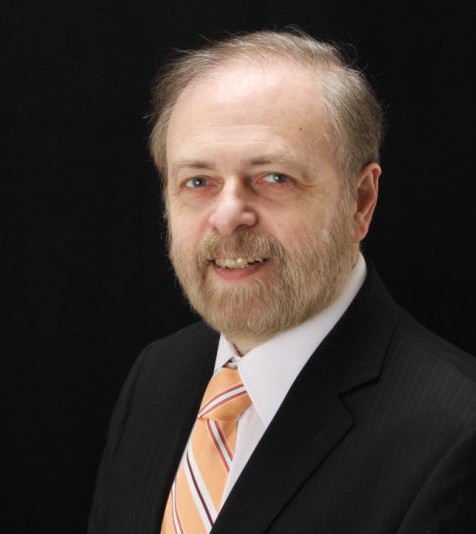By Michael O’Connor
Published by the Omaha World Herald – March 19, 2013 – Page 1 – Page 2
From the pulpit of an 18th century cathedral in Argentina, he preached the importance of treating all people with justice, no matter their race, religion or income.
The speaker was Pope Francis during his days as a cardinal in Buenos Aires.
Rabbi Mordechai Levin, now of Omaha, soaked it all in.
Levin, senior rabbi at Beth El Synagogue, attended several Masses at the Metropolitan Cathedral in Buenos Aires at which Francis delivered sermons. A rabbi in Buenos Aires at the time, Levin was invited along with other clergy on Argentine national holidays.
Levin said Cardinal Jorge Bergoglio, as he was known before he became pope, spoke in a clear, passionate voice and with a rhythm that drew in the audience. But it was his message that struck Levin.
“I always felt we (had) the same ideals and hopes to create a more just society,” said Levin, rabbi at one of the largest synagogues in Buenos Aires for 18 years before leaving in 2002 to take his position at Beth El.
At the end of the Masses, Levin and other clergy had a chance to shake hands with Francis and exchange a greeting. Francis smiled, looked him in the eye and thanked him for coming.
“He greeted everyone warmly,” Levin said.
Francis’ installation Mass will be held today.
As archbishop of Buenos Aires, Francis demonstrated a passion for strengthening relationships with other faiths, Levin said.
He showed an inclination to expand interfaith outreach to Islam and Judaism and was widely praised for his aid to the Jewish community in Buenos Aires after the 1994 bombing of a Jewish community center that killed 85 people.
On a visit to the center in 2010, Francis prayed and placed a wreath at a memorial for those who died.
Levin, who was born and raised in Buenos Aires, said he’s confident that Francis will continue to strengthen bonds with other faiths.
In an indication that the Vatican’s interfaith partners expect great things from Francis, several Jewish representatives plan to attend today’s installation. The Vatican said Muslim, Buddhist and Sikh leaders also will attend.
Just hours after he was elected the first pope ever from Latin America, Francis sent a letter to Rome’s chief rabbi, Riccardo Di Segni, saying he hoped to “contribute to the progress that relations between Jews and Catholics” have seen since the 1962-65 Second Vatican Council.
Jewish leaders welcomed the election of a pontiff seen as an ally when he was archbishop of Buenos Aires. Israeli President Shimon Peres said Francis would be a “welcome guest in the Holy Land,” while Ronald Lauder, the president of the World Jewish Congress, said the new pope “always had an open ear for our concerns.”
Levin knows firsthand the benefits of strong ties between Jewish people and those of other religions.
While he was growing up in heavily Catholic Argentina, his closest friends were Catholic. He attended public schools and a public university with Catholic and Protestant students.
His grandfather, Levin said, probably was the biggest influence on his own love of Judaism, a passion that eventually led him to the Latin American Rabbinical Seminary. He said his grandfather was deeply religious and “practiced Judaism with joy,” demonstrated in the spirited way he sang during Jewish holidays.
Levin said one of the most powerful traditions in the Jewish faith is love and respect for all people.
He said rabbis and priests alike in the Omaha area work toward that goal. Levin, for example, gives talks about Judaism to people of other faiths at his synagogue, at public high schools and at churches.
Rabbi Aryeh Azriel of Omaha’s Temple Israel does similar work. His synagogue also hosts an annual institute at which clergy of other faiths learn about Judaism.
The Rev. Ryan Lewis, interfaith officer for the Archdiocese of Omaha, said an education program through the Anti-Defamation League is another example of Catholics and Jewish people working together. The program provides Catholic schoolteachers with training for teaching about the Holocaust and addressing the historical relationship between Jewish and Catholic communities.
“Those exchanges are so beneficial,” he said.
 is the rabbi of Congregation Beth Israel in Munster, IN. He received his rabbinic ordination from the Latin American Rabbinical Seminary, and is a member of the Rabbinical Assembly. In 2010, he was awarded an Honorary Doctorate of Divinity from the Jewish Theological Seminary in New York City for his years of dedicated service to the Conservative movement and the Jewish community...
is the rabbi of Congregation Beth Israel in Munster, IN. He received his rabbinic ordination from the Latin American Rabbinical Seminary, and is a member of the Rabbinical Assembly. In 2010, he was awarded an Honorary Doctorate of Divinity from the Jewish Theological Seminary in New York City for his years of dedicated service to the Conservative movement and the Jewish community...